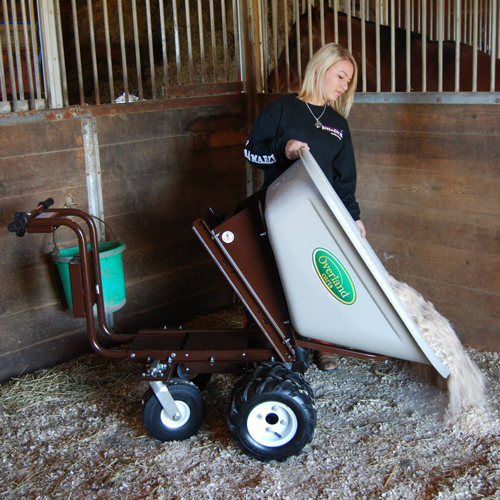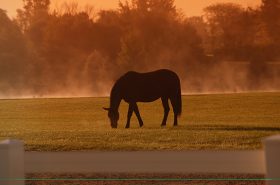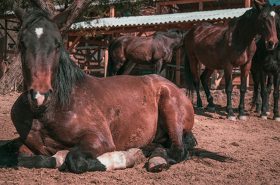If you’ve had horses for any length of time, it’s probably safe to assume you’ve spent many an hour shoveling poo. Since the average horse produces around fifty pounds of manure each day, this adds up quickly, as one might imagine.
Manure management is essential not only for aesthetic reasons but for health reasons as well. Horses grazing near manure piles are prone to higher internal parasite loads. Flies attracted to manure can also cause problems. And during heavy rains, areas with high concentrations of manure can pose a serious hazard to local water supplies.
While manure management does require some planning and work, the good news is that it’s still very achievable. The following are some tips which might help:

- In stalls, using rubber stall mats can reduce the amount of bedding needed and make clean-up easier.
- Implement rotational grazing. Four or more small pastures is ideal, but if you don’t have enough land, two sections will work (hot wire or another type of electric fencing is great for this). Rotate horses when grass is left standing at about 2-3 inches. Rotational grazing is not only good for grass recovery, but also prevents excessive manure buildup in one area.

- Remove manure weekly from heavily deposited locations, such as around watering areas, gates, and other areas where horses congregate. Ramm’s electric wheelbarrow is great for heavy duty manure collection.
- Create a storage area large enough to hold your farm’s soiled bedding and manure. This area should ideally be on higher ground, away from water runoff areas. A shed or pad made from cement, gravel, or compacted earth works well. Farms with few horses can store manure in plastic garbage cans with lids or a metal or wood bin. Once collected, manure can either be hauled off site, stored for future land application, or composted.
- If you live in a dry, sunny climate, manure can also be harrowed in pastures. It’s best to do this when horses are not grazing that particular area though. Harrowing in wetter, cooler climates isn’t a wise idea, as the parasites may survive the process!
If you need more help implementing a manure management program, I suggest contacting your local county extension office.
**
Casie Bazay is a freelance and young adult writer, as well as an owner/barefoot trimmer and certified equine acupressure practitioner. She hosts the blog, The Naturally Healthy Horse, where she regularly shares information on barefoot, equine nutrition, and holistic horse health. Once an avid barrel racer, Casie now enjoys just giving back to the horses who have given her so much. Follow Casie at www.casiebazay.com.



